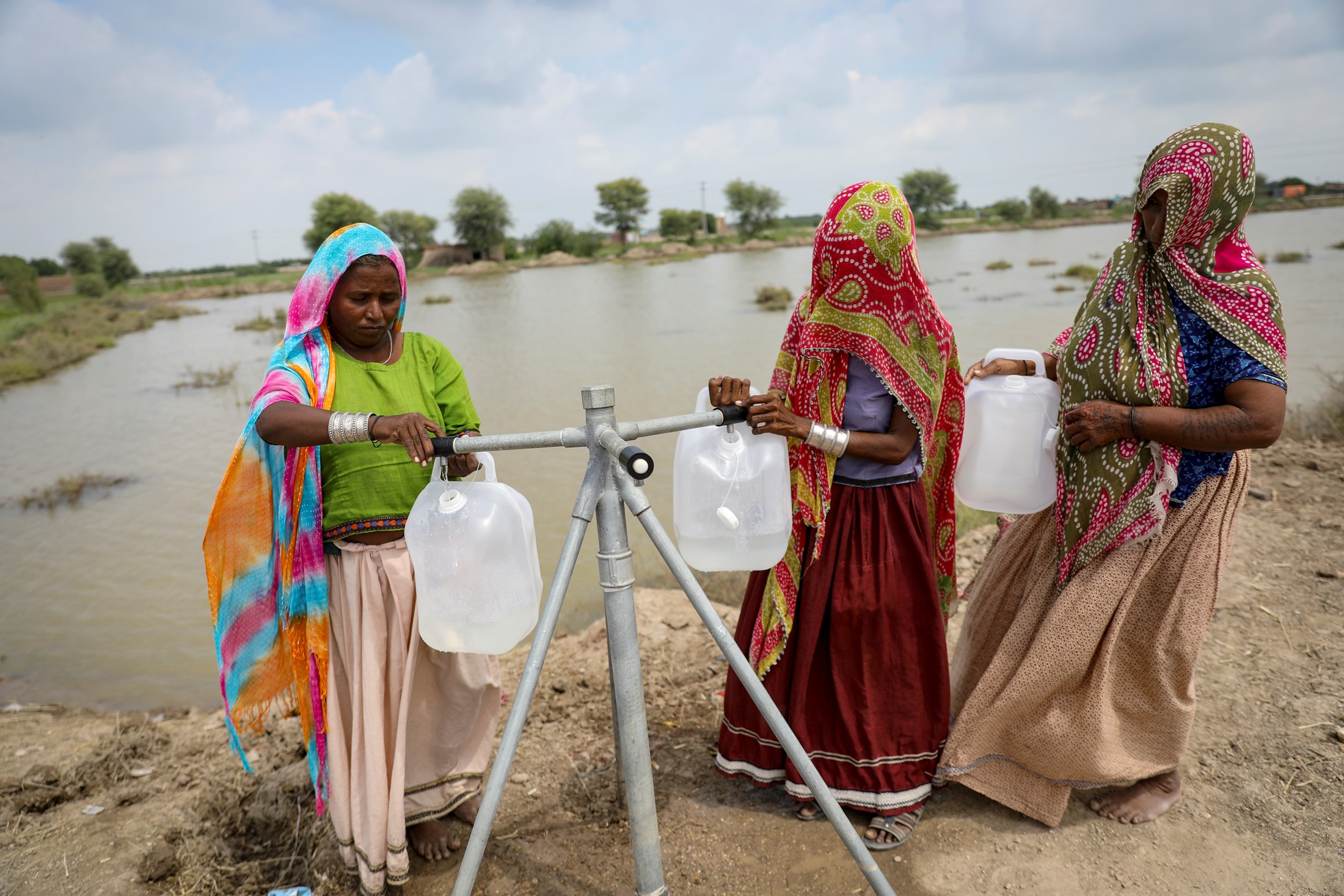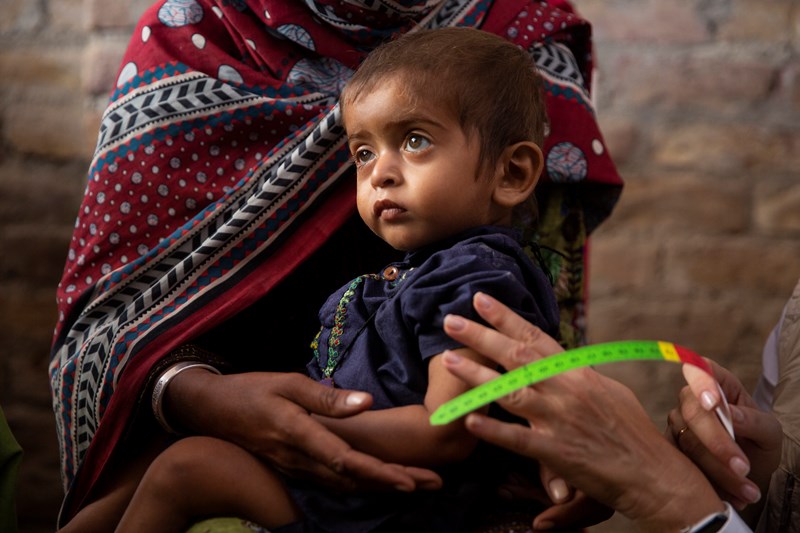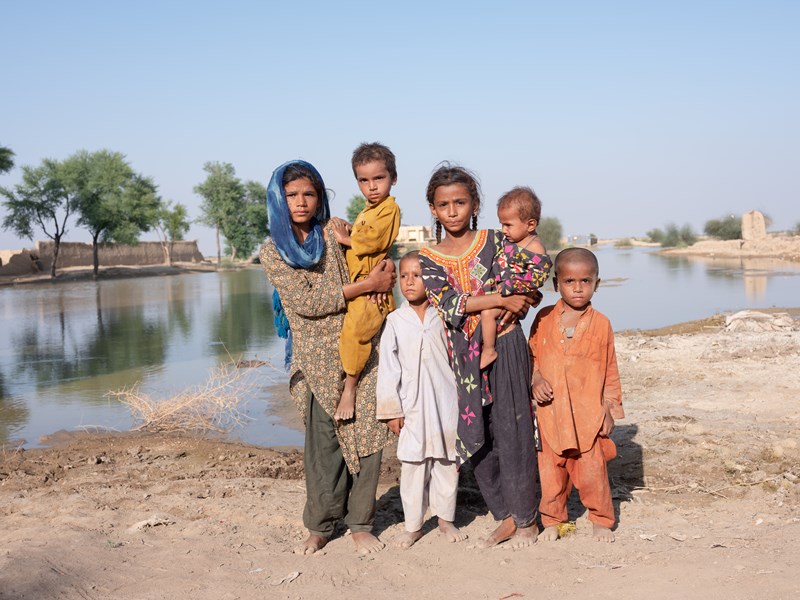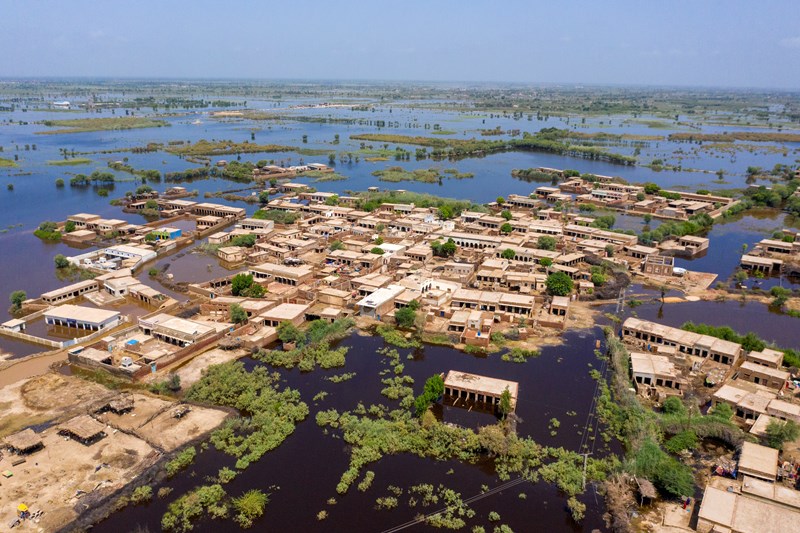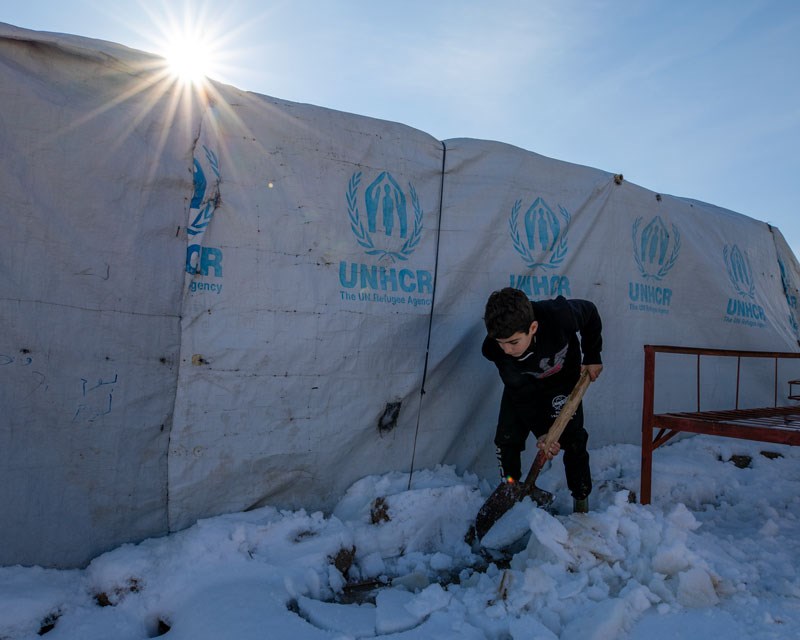Six months on from the severe monsoon rains that left one third of Pakistan underwater and claimed the lives of more than 1,500 people, some nine million children are still in need of emergency support. In the province of Balochistan, which was the worst hit, many roads remain flooded making it hard for aid agencies to deliver much-needed supplies. Access to clean water supply is severely limited and large pools of stagnant water are elevating disease risks.
With millions displaced, fields destroyed, and supply chains broken, access to food also remains difficult and expensive, compounding already high rates of malnutrition.
Meanwhile, damaged schools, blocked roads, and decimated incomes have forced two million children to drop out of education since the rains hit in June.
“The children I have met here have lost everything: loved ones, cherished schoolbooks, the only homes they ever knew, their schools, their sense of security,” said George Laryea-Adjei, UNICEF regional director for South Asia.
“As the flood waters and the media attention recede, the crisis in Pakistan has become an acute child survival crisis. Frail, hungry children are fighting a losing battle against severe acute malnutrition, diarrhoea, malaria, dengue fever, typhoid, acute respiratory infections, and painful skin conditions. As well as physical ailments, the longer the crisis continues, the greater the risk to children’s mental health.”

